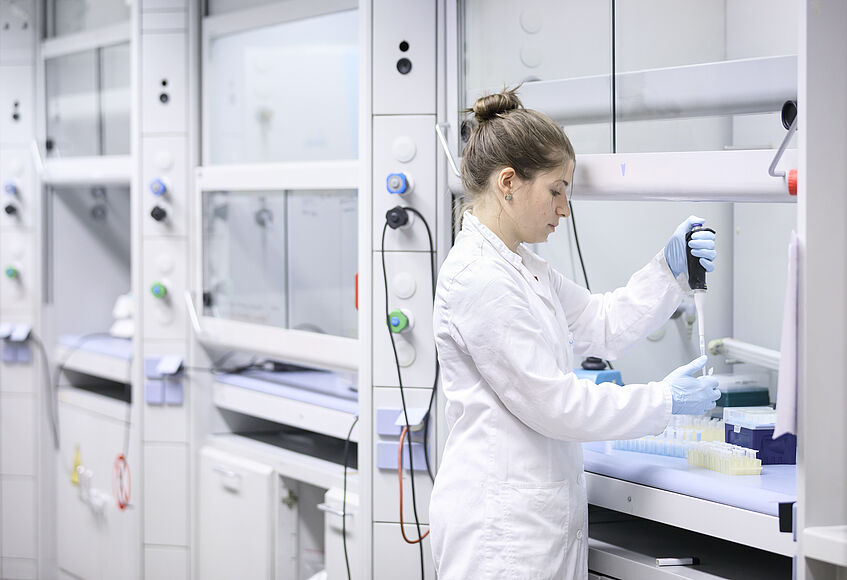Molecular Microbiology, Microbial Ecology and Immunobiology (Master)

© Universität Wien / derknopfdruecker.com
The English-language master's programme in Molecular Microbiology, Microbial Ecology and Immunobiology aims at equipping students with profound knowledge, experimental skills and academic competences in the fields of molecular microbiology, microbial ecology and immunobiology.
Master of Science
Degree Programme Code: 066 830
4 semesters / 120 ECTS credits
Language: English
NO entrance examination
Facts & Figures
- Students: n.a.
- Graduates in the last academic year: n.a.
- Number of semesters needed for graduation (median): n.a.
Data updated on: 20.07.2023
Admission Procedure
Information about the admission procedure
Information on Previous Studies:
In any case eligible degree programmes at the University of Vienna:
Study Programme
The degree programme consists of the following modules: Biochemistry, Molecular Structural Biology, Molecular Cell Biology, Molecular Medicine, Neurosciences, Molecular Biology, and Additional Scientific Skills for Biologists. In addition, students have to write a master's thesis and pass a master’s examination.
Five Concepts
which you will deal with during your studies:
- Genetic engineering
- Metabolomic research
- Metagenomic research
- Pathogenesis
- Gene expression
... and many more.
Overview of the programme structure & topics
Here you find the current offer of courses for this programme to gain better insight into the topics and structure. For more information please click on the respective level.
After Graduation
Graduates can pursue a career in the following occupational fields:
- academic career in private and public higher education and research institutions (in the fields of chemistry, biology, or medicine with a focus on biochemistry)
- research activities and career in a clinical setting (e.g. genetic medicine, medical and biological fields of basic research, clinical research, as well as therapy design)
- chemical and pharmaceutical laboratories and biotechnology (from start-ups to large-scale industry)
- public administration in the fields of chemistry, environment and medicine (e.g. risk assessment, genetic engineering and infection biology)
- product development (development of therapeutics and diagnostics), production and quality control in the chemical and pharmacological industry
- product management for chemical, biomedical and pharmaceutical companies
- high resolution molecular biological and chemical analysis, clinical and environmental diagnostics (industry, clinics, private companies)
- patent sector (national/international organisations and companies).
Graduates' Perspective on the Degree Programme
Graduates ...
- say that this degree programme receives the grade: 2.3 (good)
- rate the level of difficulty as: 3.6 (high)
→ These results are based on feedback from 30 graduates.
*You can find further assessments of the degree programme from its graduates’ perspective in the graduate survey of the master's programme in Molecular Microbiology, Microbial Ecology and Immunobiology (in German).
Graduates ...
- find employment within 3 months after graduation on average.
- earn an average of € 3,157 (women) and € 3,222 (men) gross per month within three years after graduation.
- work full time at a percentage of 87% (women) and 82% (men) within three years after graduation.
*You can find further information on career entry and career paths in the tracking of graduates "MA Molecular Biology".
